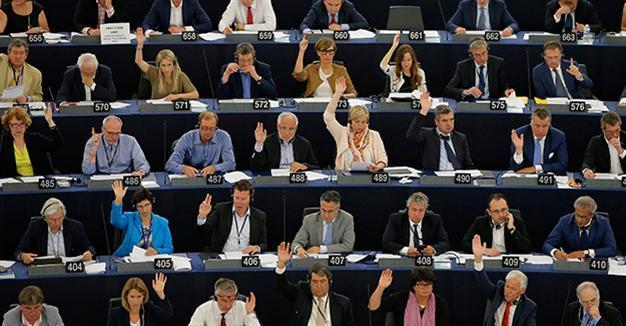EU parliament backs new border force
BRUSSELS – Agence France-Presse

The European Parliament on July 6 approved a new border guard force to tackle the migrant crisis which could intervene in front-line countries like Greece and Italy from September.
The EU’s 28 member states agreed to set up the force last month as a key part of the bloc’s strategy for tackling the flow of the migrants along with a deal with Turkey sealed in March.
MEPs meeting in Strasbourg, France, approved the new border force by 483 votes to 181 against, with 48 abstentions.
“The legislation will enter into force this autumn,” the European Parliament said in a statement.
Brussels aims to have the force start operations in September and be fully operational by November, under a roadmap to restore the passport-free Schengen Zone after the travails of the migration crisis.
Several countries have reintroduced border controls that were eliminated years ago as part of Schengen as the EU deals with a record flow of more than one million migrants and refugees since the start of 2015.
Under the deal, member states would still manage their borders on a daily basis but could call on emergency support from a pool of at least 1,500 border guards.
The new force represents an expansion of the size and tasks of the existing Frontex border agency, based in Warsaw.
Frontex, for its part, welcomed the vote by the European Parliament.
“I am very pleased about today’s vote by the Parliament. While the new regulation still has to be approved by the Council of the European Union, we have already started intensive preparations for its implementation,” said Frontex Executive Director Fabrice Leggeri in a written statement issued on the organization’s website on July 6.
Frontex said that the key goals for the new European Border and Coast Guard Agency was to ensure the implementation of integrated border management at EU level, oversee an effective functioning of border control at the external borders, provide increased operational and technical assistance to EU Member States, support search and rescue operations and play an enhanced role in returns.
 The European Parliament on July 6 approved a new border guard force to tackle the migrant crisis which could intervene in front-line countries like Greece and Italy from September.
The European Parliament on July 6 approved a new border guard force to tackle the migrant crisis which could intervene in front-line countries like Greece and Italy from September.